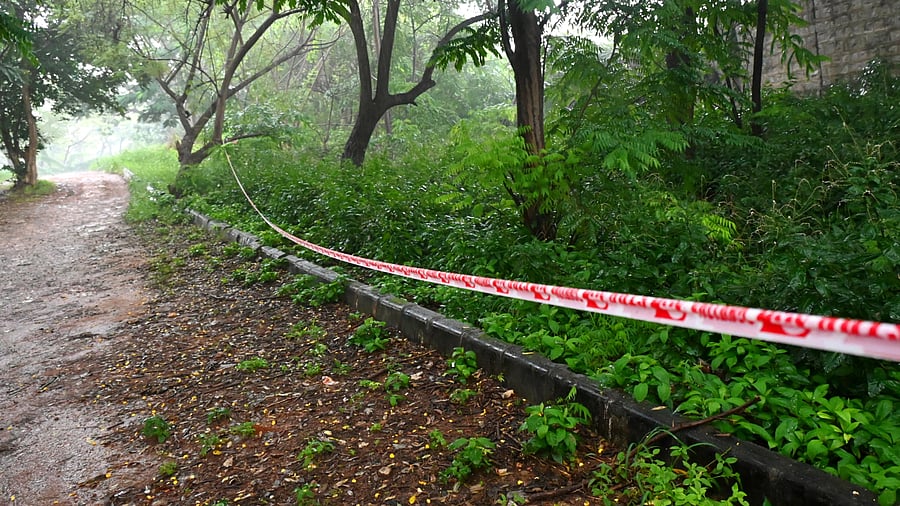
A section of Lalbagh marked for the Greater Bengaluru Authority’s proposed tunnel road project.
Credit: DH PHOTO
Bengaluru: The government’s proposed underground tunnel project has triggered growing opposition from citizens and environmental activists, with the #SaveLalBagh campaign gaining traction across Bengaluru.
Activists call the project an "ecological and economic disaster" and demand that the government adopt a decentralised approach to development. They argue that encouraging businesses to move to other cities in Karnataka, instead of concentrating growth in Bengaluru, would ease congestion and reduce pressure on the city’s limited green spaces.
Thanmaya BP, an IT consultant and civic activist, said the tunnel road “should not be executed in any way, shape, or form” and described it as an unviable solution to the city’s traffic woes. He said the funds would be better utilised to improve public transport by expanding the BMTC’s fleet and increasing metro connectivity.
"The government has not even provided proper roads; instead, it plans to dig under them,” Thanmaya said. He also questioned the geological feasibility of the project, citing Bengaluru’s underground aquifers that supply much of the city’s water.
Dr Yellappa Reddy, chairman of the Lalbagh–Cubbon Park Committee and former secretary of the Department of Ecology and Environment, warned the tunnel could “have a significant impact on the ecology".
He explained that tunnelling under Lalbagh’s heritage rock could destabilise the area. “There is a 100% chance the lake will rupture due to the work, and water will rush into Chandapura Road, Chandapura Garden, and finally end up at Nimhans,” he said.
Reddy added that blasting and venting during tunnelling would release dust and debris, kill beneficial bacteria, and degrade the park’s air quality. He also questioned whether any risk assessment or expert consultation had been conducted with institutions such as the Rock Research Institute or IISc.
Environmental activist Alexander James said the project was "not feasible for Bengaluru", noting that metro tunnelling itself took two years.
Activist Rachana Ravikiran echoed this concern. “As we have seen in developed countries, more roads, flyovers or tunnels only invite more vehicles. Improving public transport is the light we’re seeking at the end of the tunnel,” she said.